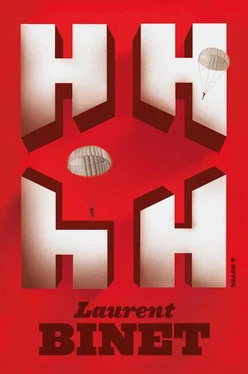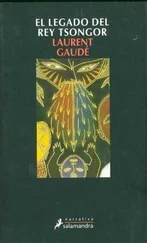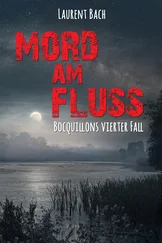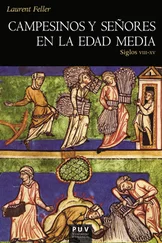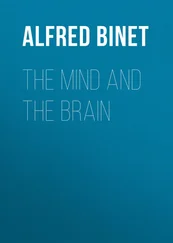Laurent Binet - HHhH
Здесь есть возможность читать онлайн «Laurent Binet - HHhH» весь текст электронной книги совершенно бесплатно (целиком полную версию без сокращений). В некоторых случаях можно слушать аудио, скачать через торрент в формате fb2 и присутствует краткое содержание. Город: New York, Год выпуска: 2012, ISBN: 2012, Издательство: Farrar, Straus and Giroux, Жанр: Историческая проза, на английском языке. Описание произведения, (предисловие) а так же отзывы посетителей доступны на портале библиотеки ЛибКат.
- Название:HHhH
- Автор:
- Издательство:Farrar, Straus and Giroux
- Жанр:
- Год:2012
- Город:New York
- ISBN:978-0-374-16991-6
- Рейтинг книги:3 / 5. Голосов: 1
-
Избранное:Добавить в избранное
- Отзывы:
-
Ваша оценка:
- 60
- 1
- 2
- 3
- 4
- 5
HHhH: краткое содержание, описание и аннотация
Предлагаем к чтению аннотацию, описание, краткое содержание или предисловие (зависит от того, что написал сам автор книги «HHhH»). Если вы не нашли необходимую информацию о книге — напишите в комментариях, мы постараемся отыскать её.
HHhH — читать онлайн бесплатно полную книгу (весь текст) целиком
Ниже представлен текст книги, разбитый по страницам. Система сохранения места последней прочитанной страницы, позволяет с удобством читать онлайн бесплатно книгу «HHhH», без необходимости каждый раз заново искать на чём Вы остановились. Поставьте закладку, и сможете в любой момент перейти на страницу, на которой закончили чтение.
Интервал:
Закладка:
“The world makes fun of people like you. When I read the foreign press, I feel sorry for Czechoslovakia. It makes me think of the famous quotation from Schiller: ‘The Moor has done his duty, the Moor can go…’”
Apparently this quotation is proverbial in Germany, but I don’t really understand why Hitler used it here, nor what he meant… Who is the Moor? Czechoslovakia? But in what sense has it done its duty? And where could it go?
First hypothesis: from Germany’s perspective, Czechoslovakia was useful to the Western democracies merely by existing, as it weakened Germany after 1918. Now that it’s fulfilled its mission, it can cease to exist. But this is, at the very least, inaccurate: the creation of Czechoslovakia confirmed the dismantling of the Austro-Hungarian Empire, not of Germany. What’s more, if Czechoslovakia’s duty was to weaken Germany, 1939 seems an odd moment to abandon it, with Austria annexed and Germany restored to power and becoming ever more threatening.
So, second hypothesis: the Moor represents the Western democracies, who did what they could at Munich to limit the damage (the Moor has done his duty) but who are from then on careful not to get involved (the Moor can go)… Except we can tell that, in Hitler’s mind, the Moor must be the victim—the foreigner that’s been used—and that means it’s Czechoslovakia.
Third hypothesis: Hitler doesn’t really know what he means; he simply couldn’t resist quoting something, and his meager literary knowledge did not provide him with anything better. He might perhaps have contented himself with a “Vae victis!” more appropriate to the situation, simple but always effective. Or he might simply have kept his mouth shut.
80
Faced with the Führer, Hácha caved in. He declared that the situation was very clear and that all resistance was madness. But it’s already two a.m., and he has only four hours to prevent the Czech people from defending themselves. According to Hitler, the German military machine is already on the march (true) and nothing can stop it (at least, no one seems very keen to try). Hácha must sign the surrender immediately and inform Prague. The choice Hitler is offering could not be simpler: either peace now, followed by a long collaboration between the two nations, or the total annihilation of Czechoslovakia.
President Hácha, terrified, is left in a room with Göring and Ribbentrop. He sits at a table, the document before him. All he has to do now is sign it. The pen is in his hand, but his hand is trembling. The pen keeps stopping before it can touch the paper. In the absence of the Führer, who rarely stays to oversee such formalities, Hácha gets jumpy. “I can’t sign this,” he says. “If I sign the surrender, my people will curse me forever.” This is perfectly true.
So Göring and Ribbentrop have to convince Hácha that it’s too late to turn back. This leads to a farcical scene where, according to witnesses, the two Nazi ministers literally chase Hácha around the table, repeatedly putting the pen back in his hand and ordering him to sign the bloody thing. At the same time, Göring yells continuously: if Hácha continues to refuse, half of Prague will be destroyed within two hours by the German air force… and that’s just for starters! Hundreds of bombers are waiting for the order to take off, and they will receive that order at 6:00 a.m. if the surrender is not signed.
At this crucial moment, Hácha goes dizzy and faints. Now it’s the two Nazis who are terrified, standing there over his inert body. He absolutely must be revived: if he dies, Hitler will be accused of murdering him in his own office. Thankfully, there is an expert injecter in the house: Dr. Morell, who will later inject Hitler with amphetamines several times a day until his death—a medical regime that probably had some link with the Führer’s growing dementia. So Morell suddenly appears and sticks a syringe into Hácha, who wakes up. A telephone is shoved into his hand. Given the urgency of the situation, the paperwork can wait. Ribbentrop has taken care to install a special direct line to Prague. Gathering what is left of his strength, Hácha informs the Czech cabinet in Prague of what is happening in Berlin, and advises them to surrender. He is given another injection and taken back to see the Führer, who presents him once again with that wretched document. It is nearly four a.m. Hácha signs. “I have sacrificed the state in order to save the nation,” he believes. The imbecile. It’s as if Chamberlain’s stupidity was contagious…
81
Berlin, March 15, 1939:
At their request, the Führer received today in Berlin Dr. Hácha, the president of Czechoslovakia [the Germans, it seems, still hadn’t officially ratified Slovakia’s independence, even though it was they themselves who’d orchestrated it], and Dr. Chvalkovsky, the foreign minister of Czechoslovakia, in the presence of Mr. von Ribbentrop, the foreign minister. During this meeting, there was a very frank discussion of the serious situation created by events of recent weeks in Czechoslovakian territory.
Both parties said they were convinced that all efforts must be made to maintain calm, order, and peace in this region of central Europe. The president of the Czechoslovakian state said that, in order to attain this objective and to create a definitive peace, he had put the destiny of the Czech people and country in the hands of the Führer of the German Reich. The Führer acknowledged this declaration and expressed his intention of placing the Czech people under the protection of the German Reich and of guaranteeing the autonomous development of their ethnic life.
82
Hitler is jubilant. He kisses all his secretaries and tells them: “My children, this is the most beautiful day of my life! My name will go down in history. I will be considered the greatest German who ever lived!”
To celebrate, he decides to go to Prague.
83
The most beautiful city in the world is disfigured by outbreaks of violence. The local Germans are spoiling for a fight. Protesters march along Václavské náměstí, the wide avenue overshadowed by the imposing Museum of Natural History. They are trying to spark a riot, but the Czech police have been told not to intervene. Acts of violence, pillage, and vandalism perpetrated by Germans awaiting the arrival of their Nazi brothers are war cries that find no echo in the silence of the capital.
Night swoops upon the city. An icy wind sweeps the streets. Only a handful of adolescent hotheads hang around to yell insults at the police on guard duty outside the Deutsches Haus. Beneath the Astronomical Clock in the Old Town Square, the little skeleton pulls its cord as it has done every hour for centuries. The bells toll midnight. The creaking of the wooden shutters is heard, but tonight, I bet no one bothers to watch the little figures march around the tower. They quickly go back inside: perhaps they will be safe there. I imagine clouds of crows flying around the sinister watchtowers of the dark Týn Church. Under the Charles Bridge flows the Vltava. Under the Charles Bridge flows the Moldau. The peaceful river that crosses Prague has two names—one Czech, the other German. It is one too many.
The Czechs toss and turn in their beds. They hope that if they make more concessions, the Germans will be merciful—but what concessions have they not already made? They hope President Hácha’s servility will move the Germans to pity. Their will to resist was broken at Munich by the betrayal of the French and the British. Now they have only their passivity to protect them from the Nazis’ bellicosity. What is left of Czechoslovakia has no greater aim than to be a small and peaceful nation. But the gangrene that infected the country in the time of Premysl Ottokar II has spread—and the amputation of the Sudetenland didn’t change anything. Before dawn, the radio broadcasts the terms of the agreement concluded between Hitler and Hácha. It is annexation, pure and simple. The news explodes like a bombshell in every Czech home. Day has still not risen when the streets begin to buzz with this rumor, and gradually the noise turns from a murmur to a clamor. People leave their houses. Some carry small suitcases: they will go to the doors of the embassies to ask for asylum and protection, which will generally be refused. The first suicides are reported.
Читать дальшеИнтервал:
Закладка:
Похожие книги на «HHhH»
Представляем Вашему вниманию похожие книги на «HHhH» списком для выбора. Мы отобрали схожую по названию и смыслу литературу в надежде предоставить читателям больше вариантов отыскать новые, интересные, ещё непрочитанные произведения.
Обсуждение, отзывы о книге «HHhH» и просто собственные мнения читателей. Оставьте ваши комментарии, напишите, что Вы думаете о произведении, его смысле или главных героях. Укажите что конкретно понравилось, а что нет, и почему Вы так считаете.
